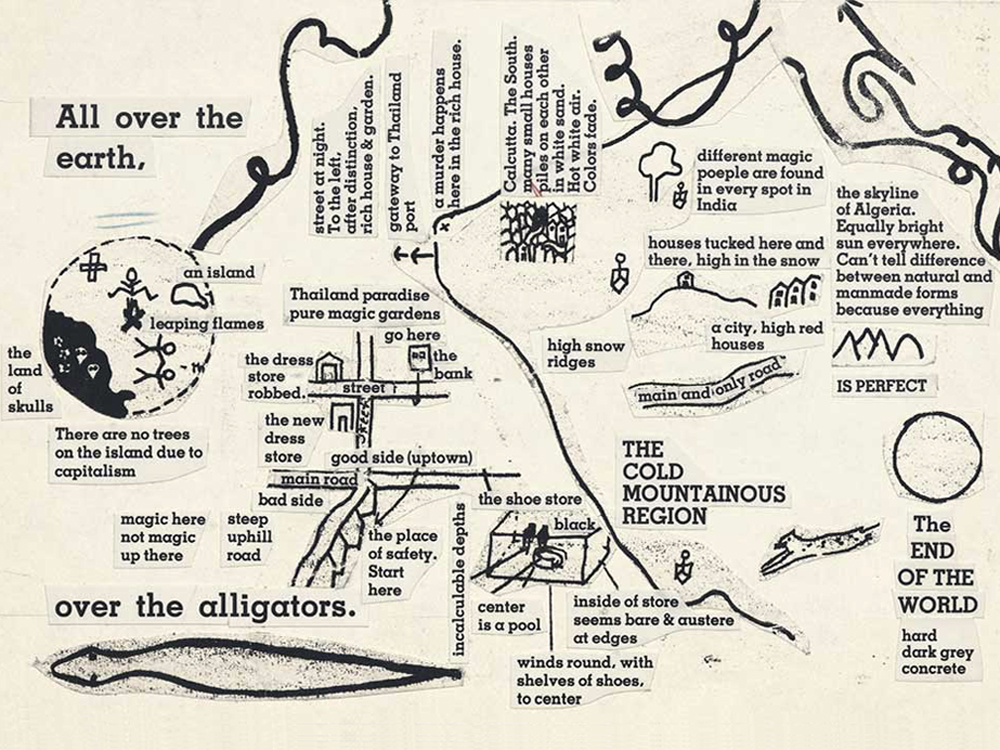Nach positiver Absolvierung der Lehrveranstaltung sind Studierende in der Lage, selbstständig einen wissenschaftlichen Aufsatz von mindestens 5.000 Wörtern im Bereich der feministischen Theorie zu einem Thema ihrer Wahl zu verfassen. Die Studierenden werden mit den Fähigkeiten ausgestattet, die zum Verfassen eines solchen Aufsatzes erforderlich sind. Dazu gehören die Anwendung des kritischen Lesens und Schreibens sowie die Anwendung des kritischen Denkens auf Architektur, Kunst und breitere soziale Themen. Die Studierenden erlangen ein Verständnis der intersektionalen feministischen Theorie als Methode zur Betrachtung der Dynamik des Raums in physischen und digitalen Umgebungen.

© Kathy Acker
Feminist spatiality is a term that simultaneously suggests feminist approaches to spatial practice and spatial readings of feminist literature and theory. What does it mean to construct feminist architectures? How is feminism as a practice and philosophy ‘architectural’ in itself?
In this seminar, we will center space as a way of reading, acting, and engaging with feminism(s). This centering will then be troubled (Haraway,1985) as we bring our discussions into the cybersphere. Are digital environments forming new avenues for feminist solidarities? If so, how would we describe and design these environments? Or might the processes of digitization reproduce and re-enforce the very hierarchies feminist struggle aims to collectively dismantle? These are all questions we will engage, discuss and experiment with throughout the course of the seminar.
Philosopher bell hooks describes intersectional feminism, or specifically ‘intersectionality’ as a perspective on inequality that argues that oppressions of race, class, gender, and sexuality cannot be understood in isolation from one another, but instead ‘intersect’ to reinforce and shape one another in ‘interlocking matrices.’ Beginning at this point of intersection, the seminar will address the many shapes of feminism. We will not only engage with literature to address these evolving definitions but examples from film, art, architecture, and social action around the world. We will also move in and beyond the classroom, exploring exhibitions, events, and other related excursions including walks and picnics. Students will be encouraged to work both independently and collaboratively. Conversation, collective reflection, and writing exercises will be the primary teaching methodology. All students are welcome regardless of background, ability, or experience in critical writing.
The main elements of the seminars will be exhibition visits, excursions, attendance of events, group discussions, group assignments, lectures, and literature study. Individual tutorials will also be possible if necessary to support with the development of the final essay.
Indicative Readings:
Sarah Ahmed, Living a Feminist Life (Duke University Press, 2017).
Paul Preciado, An Apartment on Uranus (Semiotexte, 2020)
Laboria Cuboniks, Xenofeminist Manifesto (Verso, 2018)
Legacy Russel, Glitch Feminism (Verso, 2020)
First Seminar: 14 March 2023, 2pm
Beachten Sie beim Verfassen der Ausarbeitung bitte die Richtlinie der TU Wien zum Umgang mit Plagiaten:
Leitfaden zum Umgang mit Plagiaten (PDF)